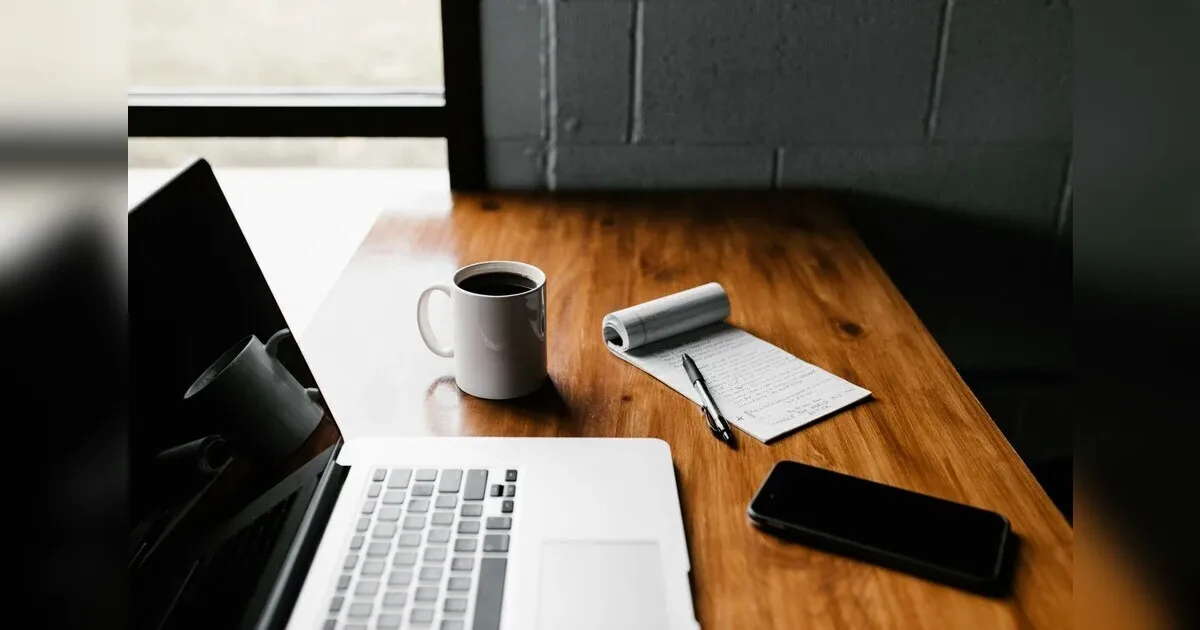The dilemma remains on whether we actually benefit from our daily brew or unconsciously tip the scale of detrimental effects.
The Caffeine Conundrum: Is Your Cup of Coffee Killing You?
Coffee is part of the daily grind from simple breakfast booths in Midwestern America to high-class restaurants in Milan. As many as 2.25 billion cups are consumed daily in the world according to statistics. However, the active ingredient of coffee is a drug called caffeine, which acts as a stimulant.
With our growing love for coffee, the amount of caffeine intake needs to be brought under scrutiny too. The dilemma remains on whether we actually benefit from our daily brew or unconsciously tip the scale of detrimental effects.
In this article, we shall delve into the hidden effects that excessive intake of caffeine would cause. Read on!
What is Caffeine?
Caffeine is a natural drug found mainly in the nut seed of coffee plants, leaves of tea plants, and cacao pods. Its mode of action is by stimulating the central nervous system, thus enabling it to repel tiredness and regain alertness for a temporary period.
Other products that naturally and synthetically incorporate caffeine are energy drinks, soft drinks, and even some drugs.
How Caffeine Works in the Body
Caffeine blocks adenosine-a neurotransmitter of the brain that induces sleep and relaxation. In exchange for blocking adenosine, caffeine raises activity of many other neurotransmitters such as dopamine and norepinephrine, which activates alertness and improves mood.
Suggested Daily Limits
For an average adult, a dosage of 400mg of caffeine taken in a day has been considered safe and estimated at about four 8-ounce cups of brewed coffee.
Recommendations are unpropitious under various demography:-
-
Pregnant: consume about 200mg within a day
-
Children and Adolescence: Consume least caffeine
Benefits of Drinking Coffee
Improved Intellectual Performance
In moderation, caffeine enhances mental performance reflected in reaction times, attention, and intellectual performance generally. The most efficient application occurs when tasks require continuous attention and problem-solving activity.
Better Physical Performance
The most common ingredients in sport-enhancing dietary supplements involve caffeine. It is believed to heighten the levels of adrenaline hence enhancing physical performance.
Besides, it enhances the levels of endurance hence one can work out longer and harder .
Antioxidant Properties
It helps the body to fight oxidative stress brought about by antioxidant action, probably reducing chronic diseases such as heart disease and particular types of cancers.
Improvement in Mood
Caffeine enhances the mood and an individual feels good. It does this by making more dopamine released and that neurotransmitter is known as the "feel good" neurotransmitter; hence, it helps to reduce depression in some individuals .
Possible Health Benefits
Scientific researches have documented that moderate coffee consumption decreases the risk for the following conditions:
-
Parkinson's disease
-
Alzheimer's disease
-
Type 2 diabetes
The Dark Side of too Much Caffeine: How Much is Too Much?
Too much caffeine means an intake of more than 400mg. These are the amounts that, if constantly surpassed, will become harmful.
Increased Anxiety and Jitters.
These are among the most well-recognized adverse side effects of too much caffeine consumption. Anxiousness is among the most prevalent side effects arising with excessive intake of caffeine.
In a moderate amount, it increases a person's concentration whereas in large quantities, it induces restlessness and anxiety. Anxiety disorders in individuals are exacerbated by the use of caffeine, and the panic attacks become even more intense.
Disrupted Sleep
Normally, afternoon and evening consumption of caffeine lowers the quality and quantity of sleep, hence making one get into that vicious circle of fatigue and increased intake of caffeine. Poor sleeping has a domino effect on general health by rolling over bad effects on mood and cognitive function.
Heart Health Concerns
While average intake of caffeine is harmless for most people, a higher quantity of consumption can act as a stimulant that results in rapid heartbeat and high blood pressure.
Many surveys have correlated high intake of caffeine with cardiovascular diseases especially in those people who have a genetic tendency to such conditions .
Gastrointestinal Problems
Too much caffeine might eventually cause the acid to be released into the stomach. It, therefore, leads to digestion problems or even an acid reflux and peptic ulcers of the stomach.
In excess, it acts on sensitive stomachs. It shows discomfort and extension of gastro problems.
Habituation and Withdrawal Symptoms
Taking much caffeine over a long time leads to habituation. It is when one becomes insensitive to the drug. On being stopped or considerably reduced, one feels the headache, fatigue, irritability, and an inability to concentrate- all symptoms which give the reduction or abstinence a little hitch .
Sensitivity to Caffeine: Understanding Individual Differences
What is caffeine sensitivity?
Caffeine sensitivity starts from the genetic predisposition down to metabolic rates, even how they consume the substance.
How does this apply in daily intake? Some people would start developing jittery or anxious feelings right after one cup of coffee, while in others, a couple of cups wouldn't leave detrimental effects.
You should therefore be so aware of how sensitive you are to make healthy choices for yourself in regard to intake.
Know your limit.
Knowing these symptoms of sensitivity-causing a racing heart, irritability, and sleep deprivation-will surely help you tailor your level of intake accordingly.
Caffeine and Mental Health
Link between Caffeine and Anxiety Disorder
Caffeine can also heighten anxiety disorders among many people. For instance, it is recorded that excessive intake of caffeine even provokes panic attacks among vulnerable persons.
Impact on Mood and Control over Emotions
Though caffeine elevates mood over time, with increasing rates, excessive consumption leads to mood swings and irritability.
How Caffeine Can Relate to Depression and Stress Management
The stimulating nature of caffeine can often camouflage the sense of tiredness or sadness at times hence may disturb the course of depression treatment.
Caffeine Withdrawal: What to Expect
Abstinence, in relation to caffeine, would then be the most painful since this would be related to the intake that normally sees its regular consumption.
Once the human body readjusts itself in not having the caffeine in the system, there is every real possibility that a whole set of withdrawal symptoms may set in that might be quite uncomfortable and a breach of routine.
The Signs and Symptoms of Caffeine Withdrawal
Caffeine withdrawal symptoms start in 12 to 24 hours after abstinence and can last for days, which ranges from two to nine days. The generally complained-about symptoms will include the following:
Headaches
Headaches are usually dull and throbbing pain. In caffeine-withdrawal headache, this intensity is considerably higher because the brain has taken quite a long period adapting to this overall lower degree of stimulation.
Fatigue
In contrast to the stimulating action of caffeine, many users reported that the medication made them sleepy and lethargic, which could not be understood; it was hard to stay awake and alert enough to do anything productive.
Irritability
Mood swings, irritability are common. The human body is in overdrive in order to respond to the sudden absence of caffeine, which either upsets or annoys them.
Difficulty Concentrating
Many of them are unable to focus or clearly think out during withdrawal; thus, a lot of people find it very difficult to accomplish day-to-day tasks.
Flu-like Symptoms
Besides general fatigue, muscle ache, nausea, or even sensitivity to light in certain cases-the person is said to exhibit when one goes into caffeine withdrawal.
How to manage withdrawal symptoms
Coping with the withdrawal symptoms goes a long way in making the transition smooth. Some practical approaches are enumerated herein:
Hydrate Yourself
Plenty of water intake can avoid headaches and periods of fatigue, while proper hydration itself will contribute to the overall sense of comfort during withdrawal.
Sleep More
Probably your body needs more rest time today because it gets used to developing with a low amount of caffeine. You may develop a bedtime routine which will be really helpful for you in sleeping.
Excercise More
The more exercising someone is doing, the more energetic and in a better mood he or she will be. Take small walks or do some light yoga in order to balance your mood.
Eat Wholesome Foods
Ingest food that contains vitamins and minerals your body needs to heal and balance out your mood such as fruits, vegetables, and whole grains.
Try Herbal Remedies
Herbal teas are of use to reduce the withdrawal symptoms, and headaches, and digestive symptoms may be relaxed by peppermint and ginger.
How to Safely Reduce Coffee Consumption
The only way the side withdrawal symptoms can be reduced is by gradual reduction. This may be an overnight process or it may not be, but it surely will work with the following methods:
Gradual Substitution
Start substituting one or two of your usual cups of coffee each day for decaf or even herbal tea. You'll have that feeling of a hot cup of something, only you just won't have the caffeine.
Mix It Up
Those on regular coffee can continue having it-mix half with decaf, half with regular-and continue this for some time, gradually increasing the proportion of decaf.
Gradual Cutoff
To cut down coffee, set a schedule. For example, try cutting down one cup every week until you get to a level that you are comfortable with.
Alternatives to Coffee
To cut on the amount of caffeine intake, you may like to:
-
Herbal teas
-
Decaffeinated coffee
-
Golden milk
How You Can Personalize Your Coffee Use
-
Begin by assessing how caffeine is working in your life. Are you feeling more energized because of it-or anxious and jittery?
-
Pay more attention to your coffee: savor it, don't chug it. You might find you get by on less when you savor your coffee.
-
Setting Personal Goals for Caffeine Consumption:Set an ideal, realistic goal based upon health and lifestyle needs.
Conclusion
The caffeine sword is double-edged: on one side there is benefit in alertness and perhaps even some health benefits, and on the other it doesn't come without anxious feelings, sleep abnormalities, and chronic health repercussions. A balance must be reached.
Take some time and reflect on your caffeine intake; find if you can make changes to get your consumption in a healthy range. Be sure to mind your cup! Too much of anything is poisonous.


























